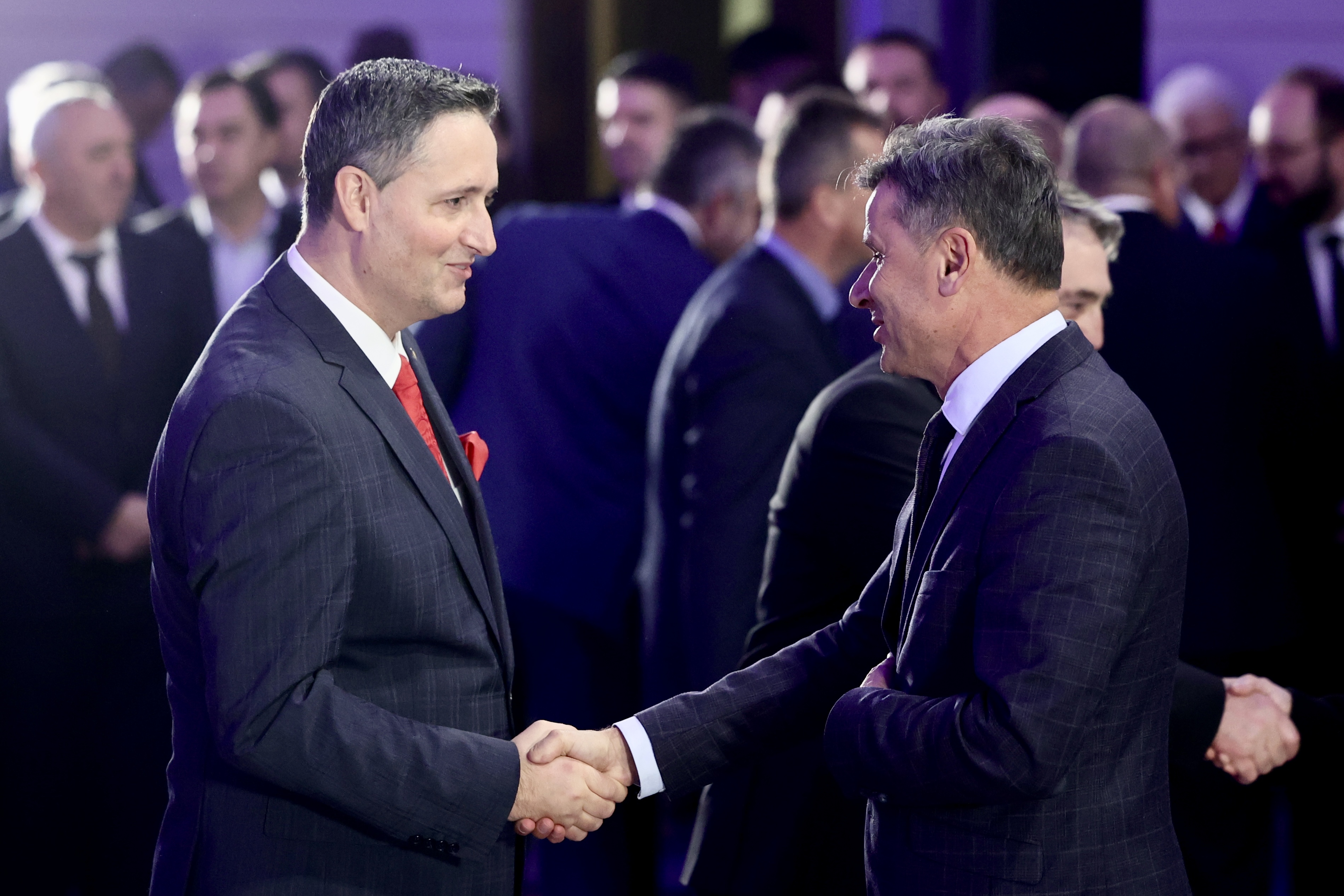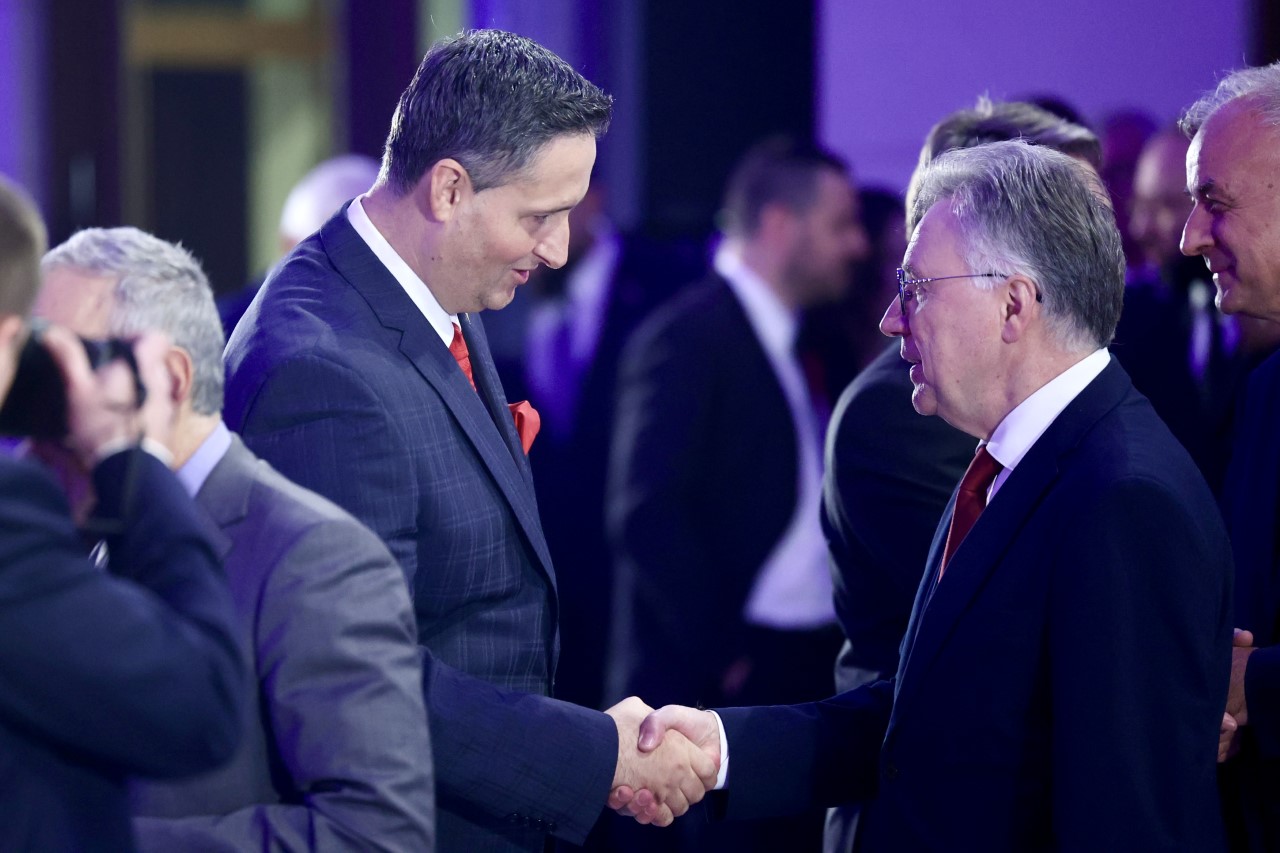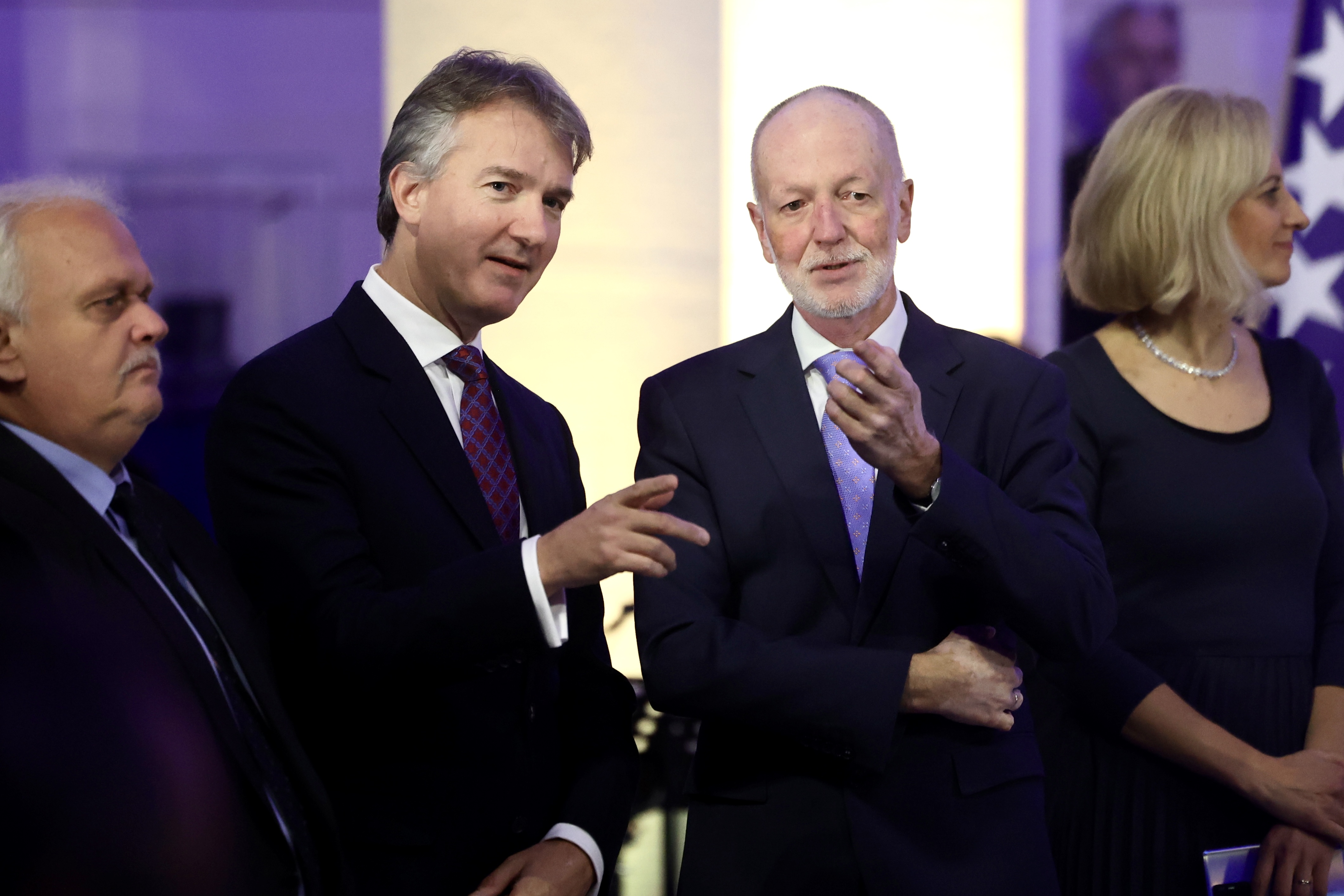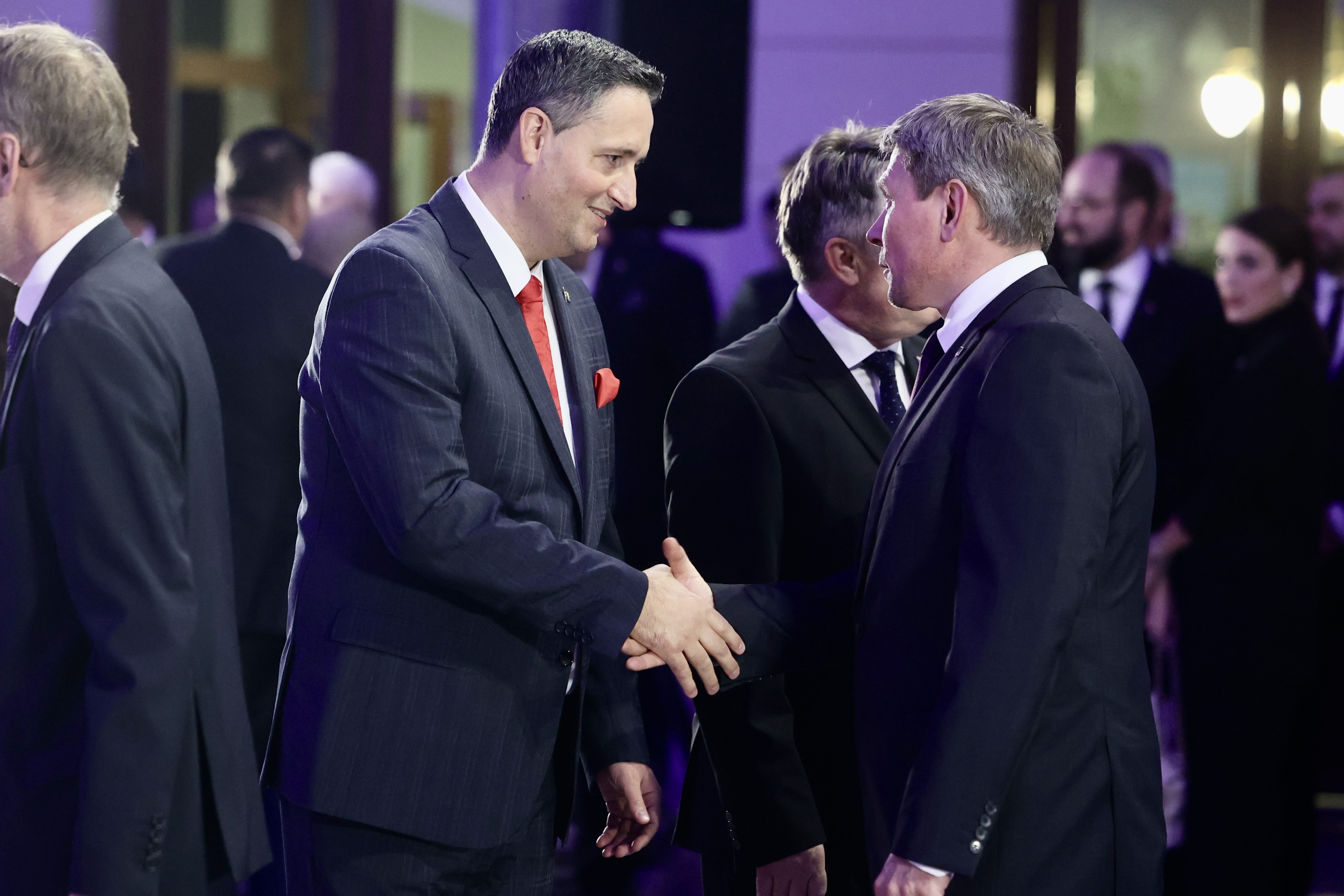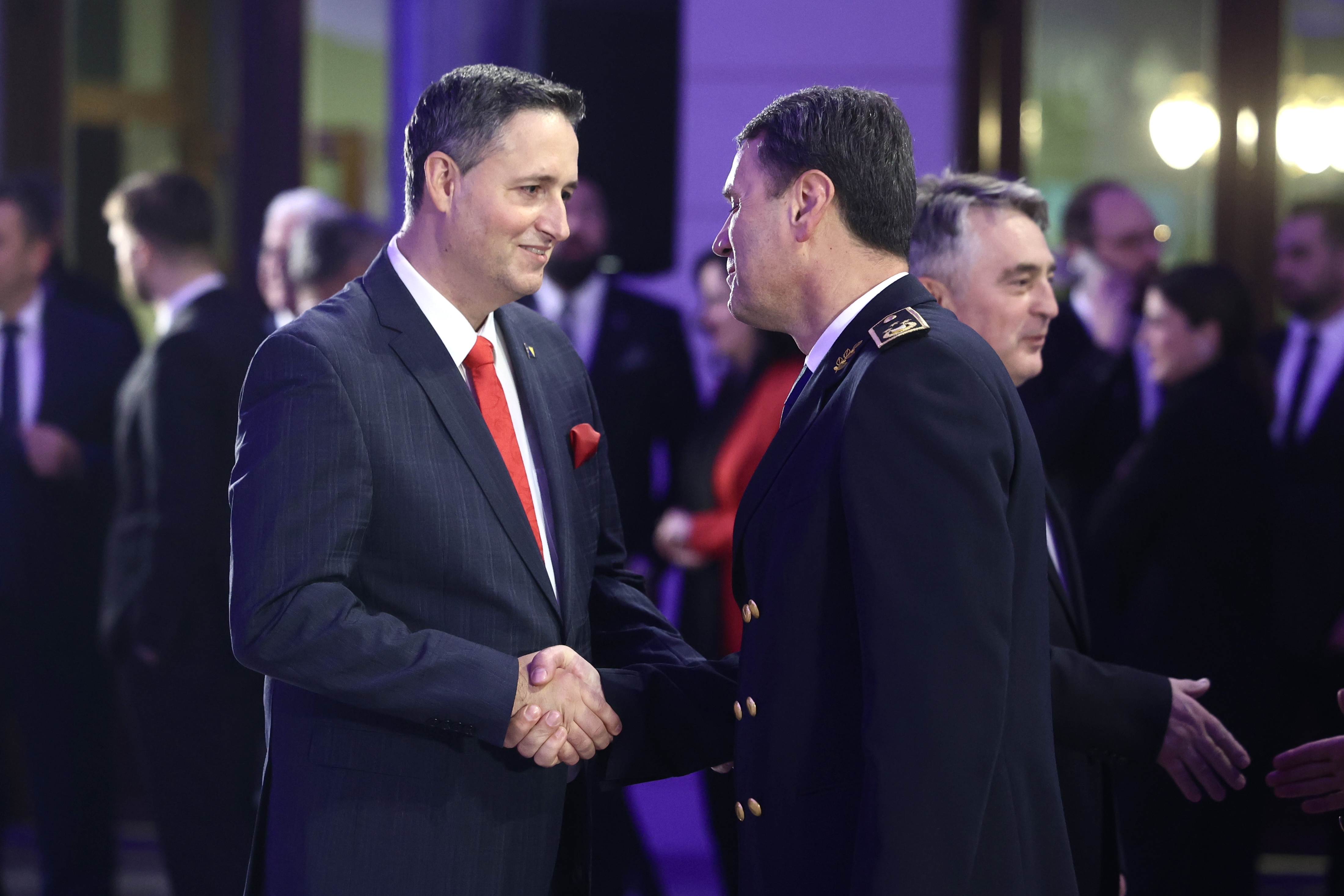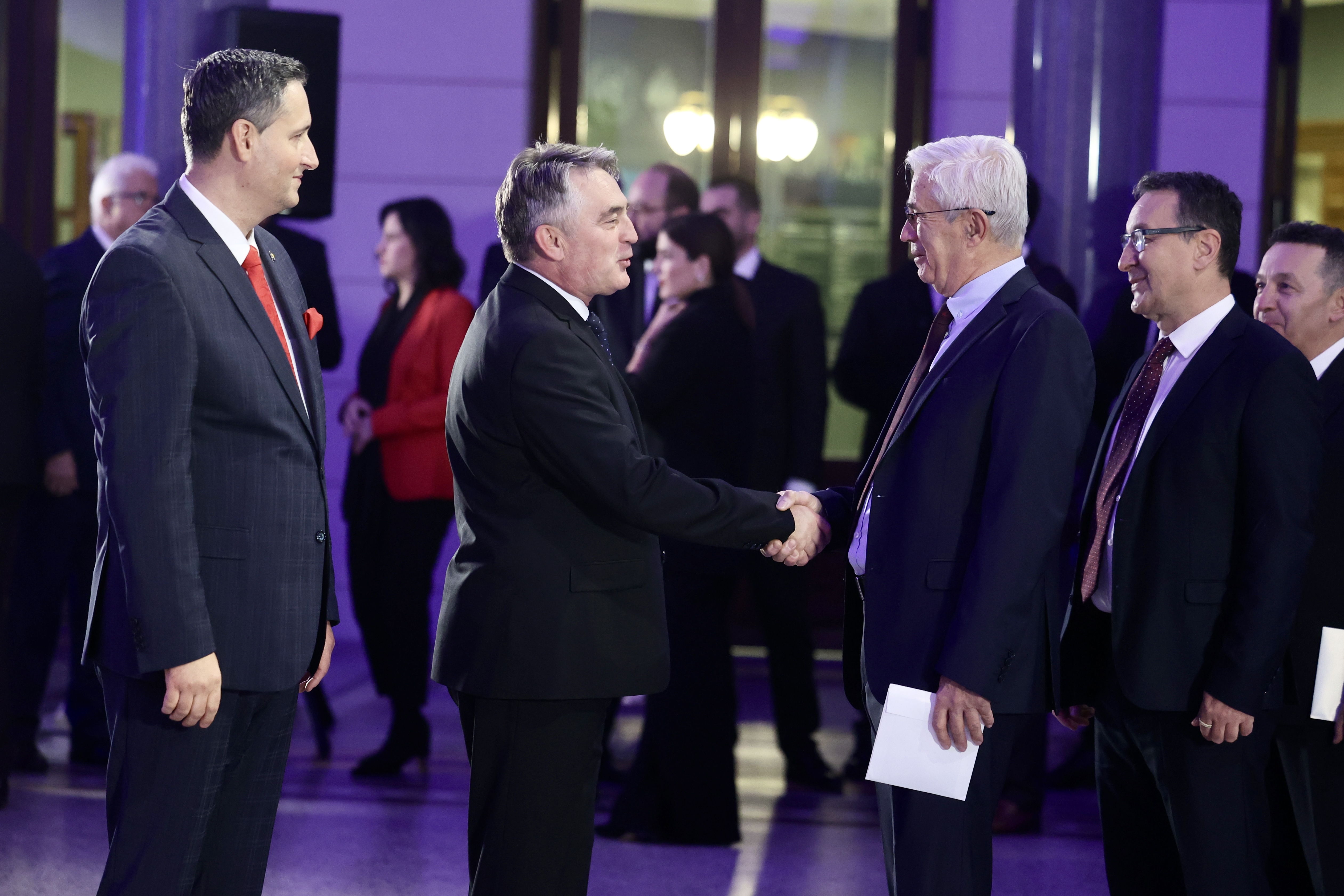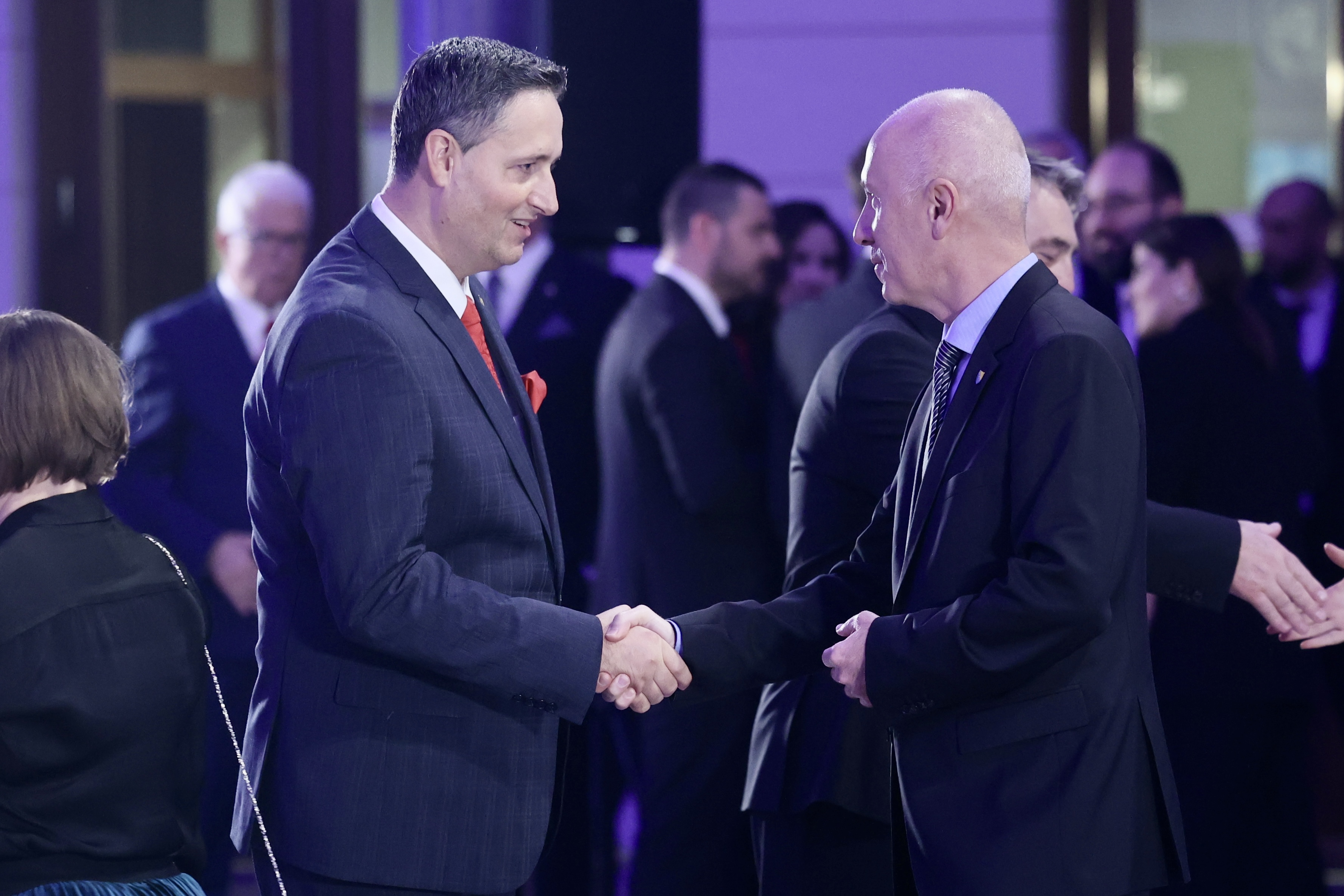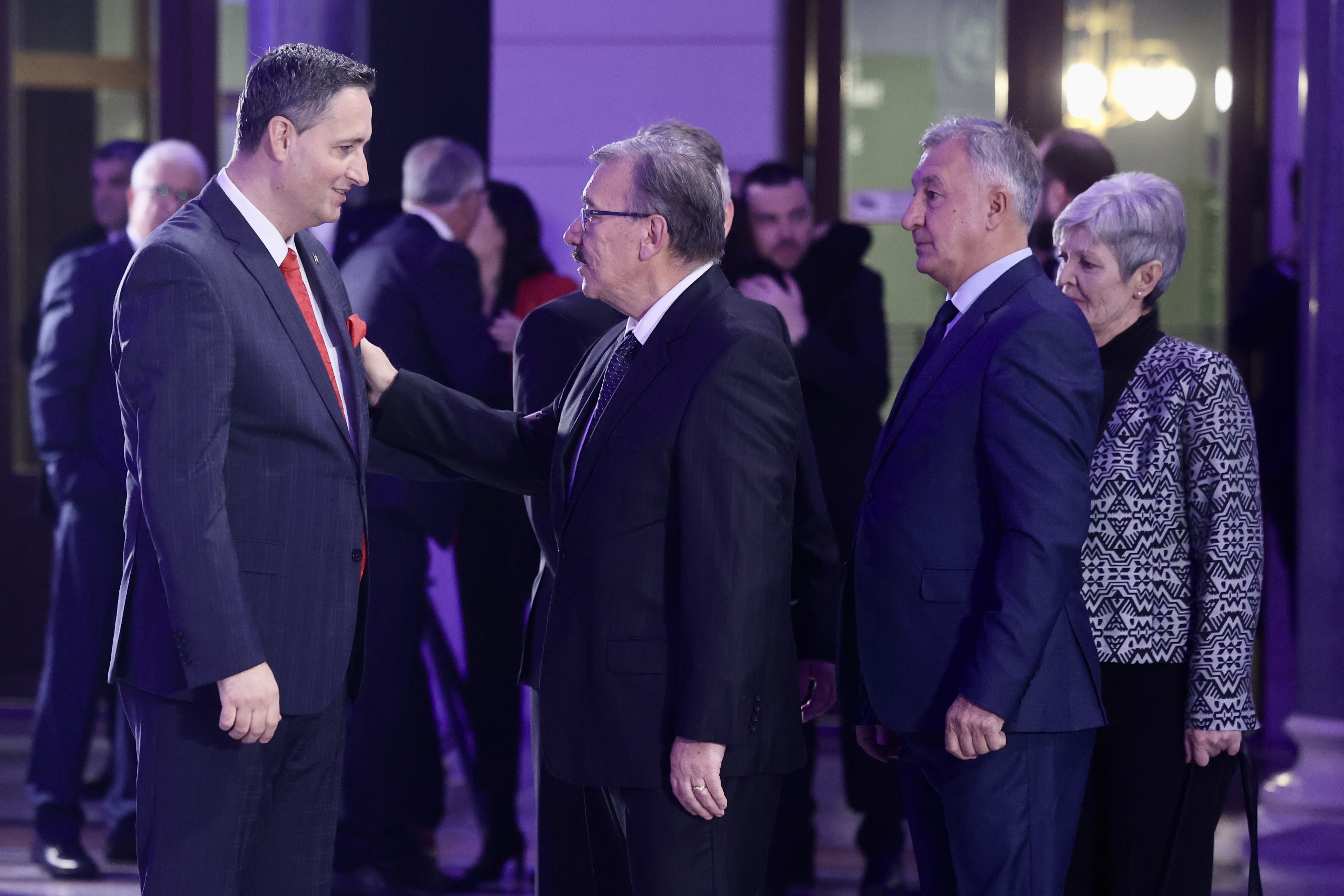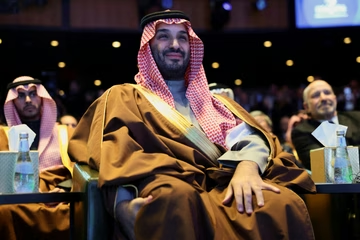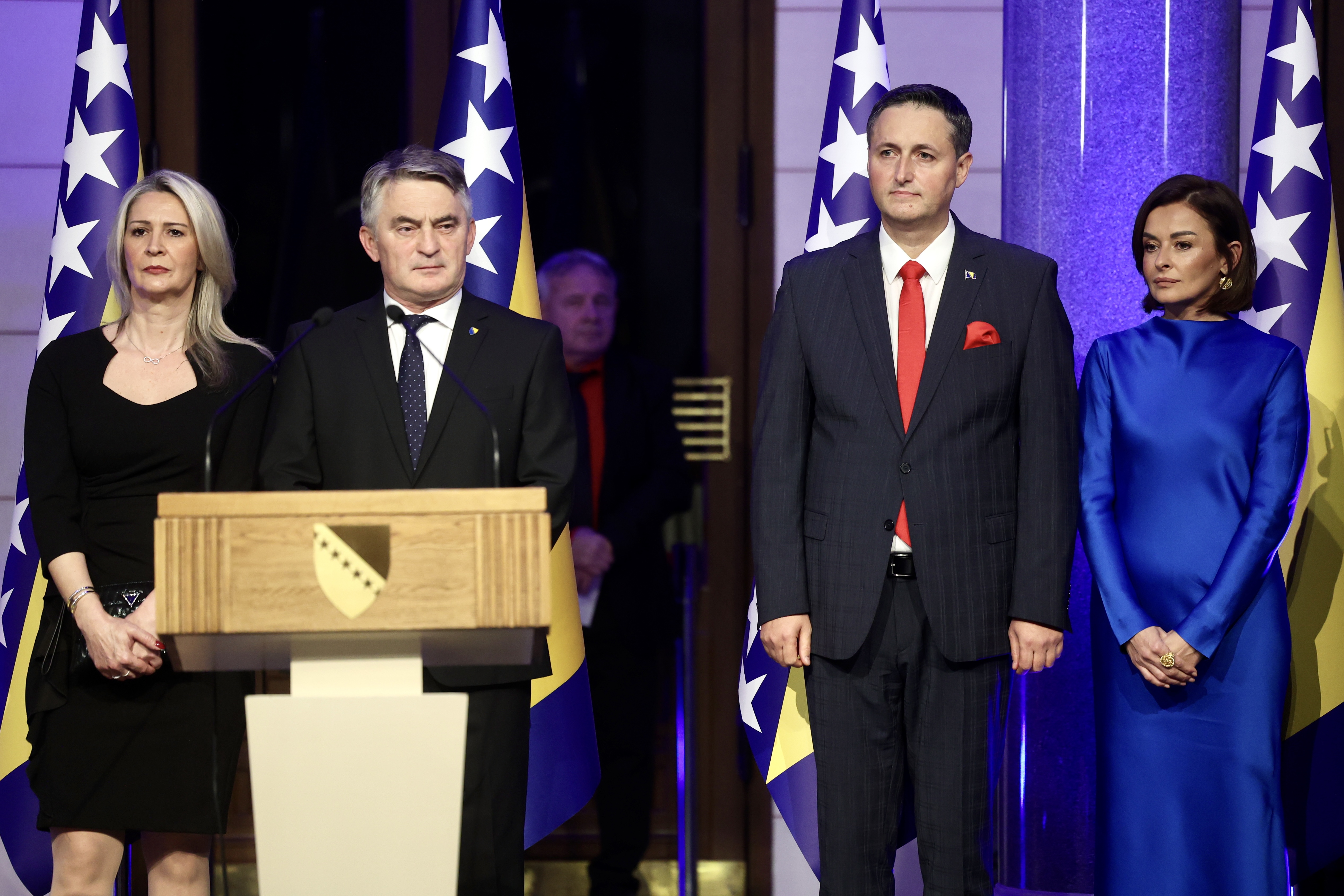
Bosnia’s Croat and Bosniak Presidency members, Zeljko Komsic and Denis Becirovic, marked Statehood Day, November 25, at the City Hall in Sarajevo where they confirmed the country’s commitment to multi-cultural character and European path.
"This year marks the 79th anniversary of the formation of the First Republic in the history of the statehood of Bosnia and Herzegovina. After two years of joint struggle against fascism and occupation, through the National Liberation Movement, the citizens and peoples of BiH constituted a people's government in 1943 and proclaimed a Republic based on the values of anti-fascism,” Komsic said in the beginning of his speech.
With this, he said, the foundations of the modern statehood of BiH were built, without which even today's BiH wouldn’t be possible, nor would any future be possible without those fundamental values on which it was built.
"The State Anti-fascist Council for the National Liberation of Bosnia and Herzegovina (ZAVNOBiH) confirmed and established the borders of the Republic, defined its territorial integrity and constituted the republican government. All of these are elements of state sovereignty, which decades later was attacked and threatened, and for which we are fighting today,” the Croat Presidency member added.
Komsic said that it seems that two visions of BiH exist today.
“One is proud, defiant and brave Bosnia and Herzegovina that is ready to fight for the values of democracy, the rule of law and the equality of all citizens. In other words, Bosnia and Herzegovina that follows the values and lessons of ZAVNOBIH. We are not afraid to say that we strive for a state system in which every citizen has equal rights and where every vote in elections is equally valid. We are not afraid to say that we are advocating for a system of values like in all the countries of the European Union, which we strive for. This is the centuries-old proud, defiant, brave and never conquered Bosnia and Herzegovina.
However, we also have another version of our country, the one that is anti-ZAVNOBIH, a subjugated country that is afraid to fight for all the values of the modern democratic world and for the values on which this country was founded,” Komsic noted.
At the end of his address, Komsic said that BiH has no price and it is not for sale.
Becirovic confirmed that there is no reason why any citizen or people should not experience this date as their holiday.
“This is not a holiday that discriminates, threatens or excludes anyone. On the contrary, this is a national holiday that connects and affirms the human rights of all citizens and nations. Unfortunately, in the post-Dayton period, it became common for one member of the BiH Presidency not to attend the commemoration of November 25. This is not a good practice. Representatives of all citizens and peoples of BiH participated in the creation of far-reaching decisions of ZAVNOBiH. That is the immortal work of the most advanced people of that time,” Becirovic said.
Denying the value of ZAVNOBiH, Becirovic said, is pointless and useless.
"Imagine if the Republic of France didn't celebrate July 14 as a national holiday with the explanation that it refers to some other France. Or for the United States of America to erase the 4th of July from its memory. It is, of course, impossible to imagine. That’s why current irrationalities and unsustainable reductionisms need to be explained to the new generations in our country as well. We must find the strength to bring the positive memory of BiH to the surface and show people that the situation in the country does not have to be the way it is today,” the Bosniak Presidency member noted.
The ideas of ZAVNOBiH point to peace and tolerance he said, which is why these ideas are more relevant today than ever.
It is time, he concluded, to start dealing with essential issues of importance for the past, present and future.
"It is time for new ideas and serious projects. We should seriously consider establishing the ZAVNOBiH Institute. It is time to raise ZAVNOBiH to the top of the value pyramid because it has a huge untapped potential to be the Bosnian Piedmont that gathers new generations with the idea of living together," he concluded.
As was the case every year since the signing of the Dayton Peace Agreement that ended the war in the country in 1995, the Serb Presidency member, Zeljka Cvijanovic, did not attend the celebration. Other guests at the event were ambassadors, international officials and representatives.

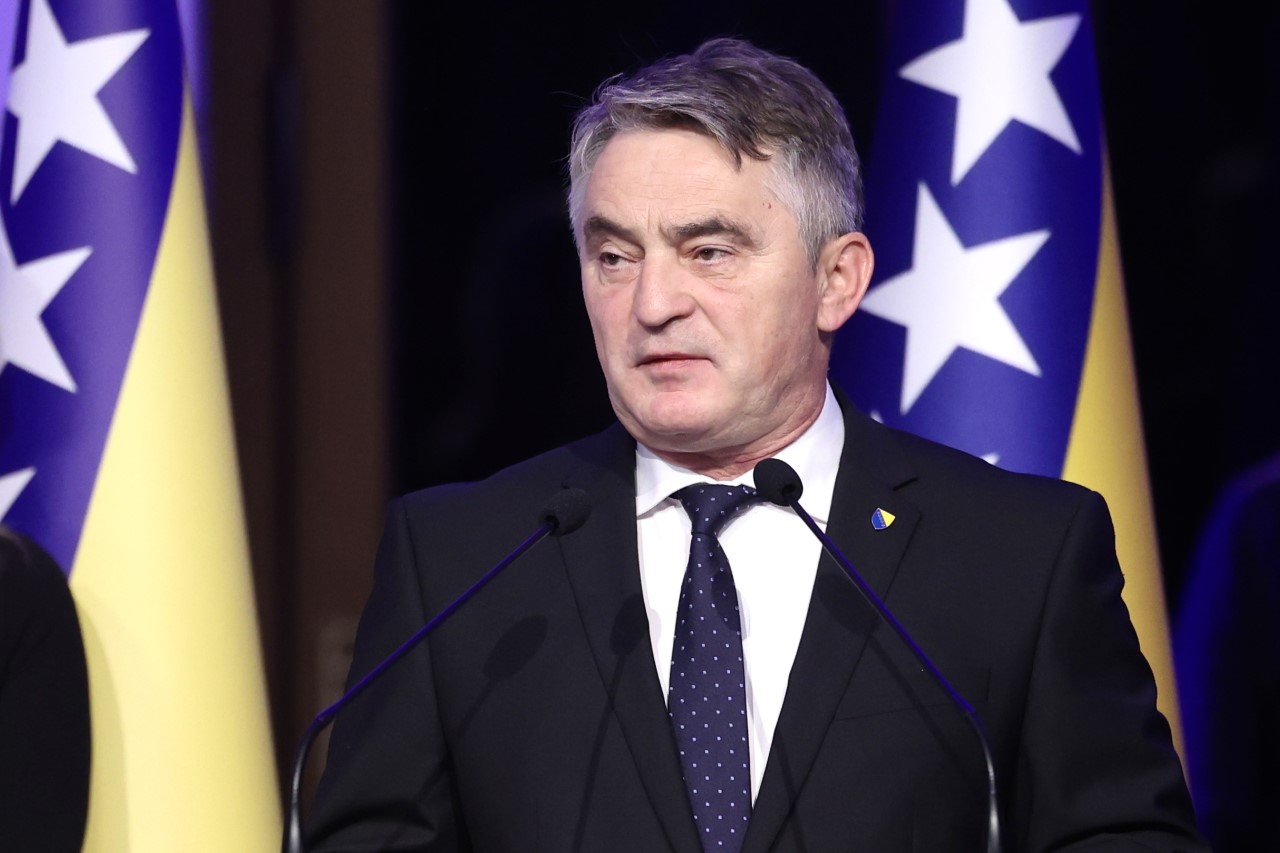

Kakvo je tvoje mišljenje o ovome?
Učestvuj u diskusiji ili pročitaj komentare





 Srbija
Srbija
 Hrvatska
Hrvatska
 Slovenija
Slovenija





